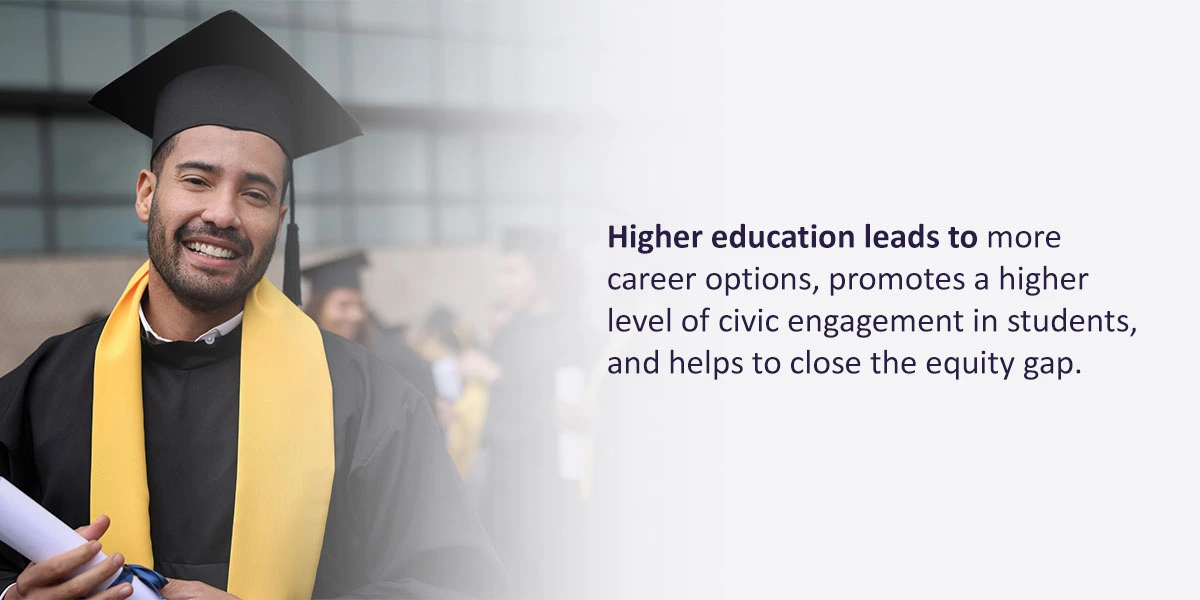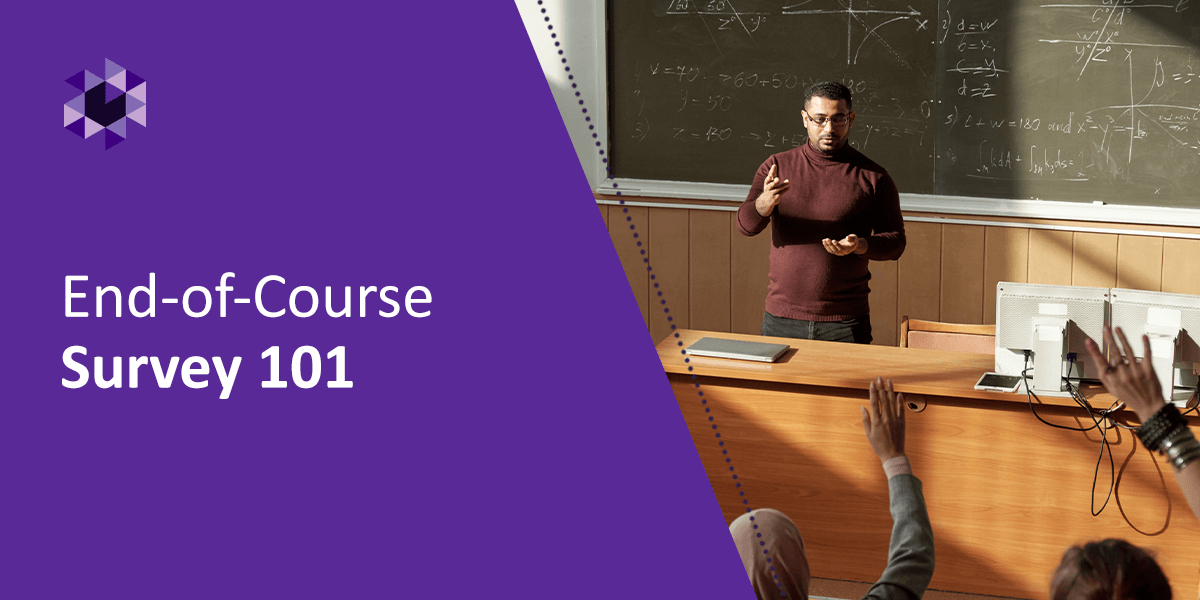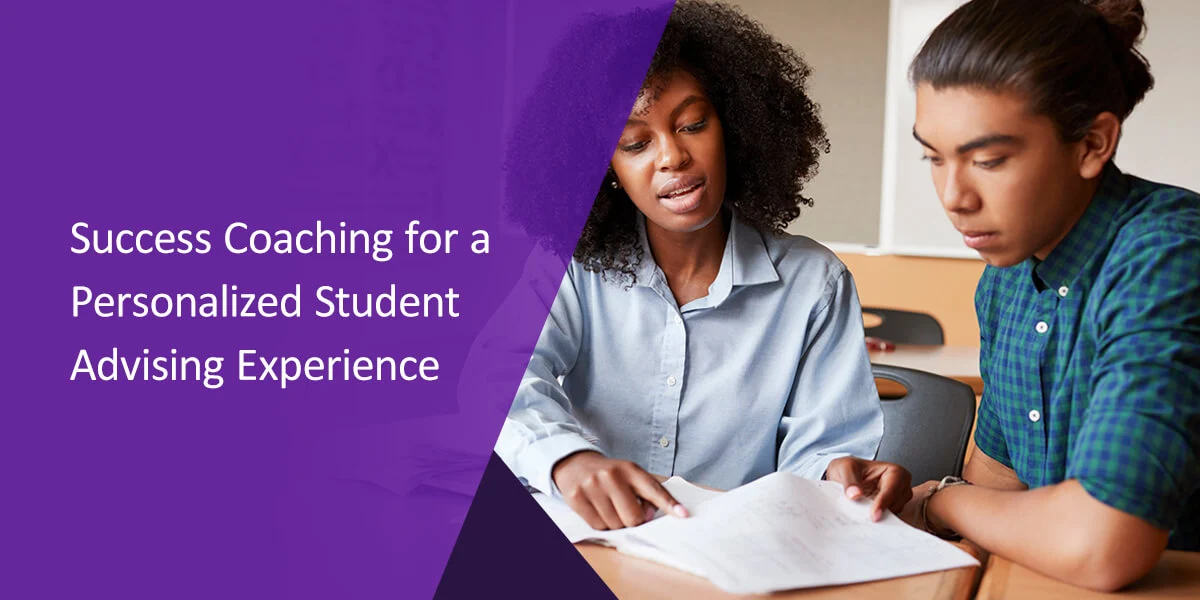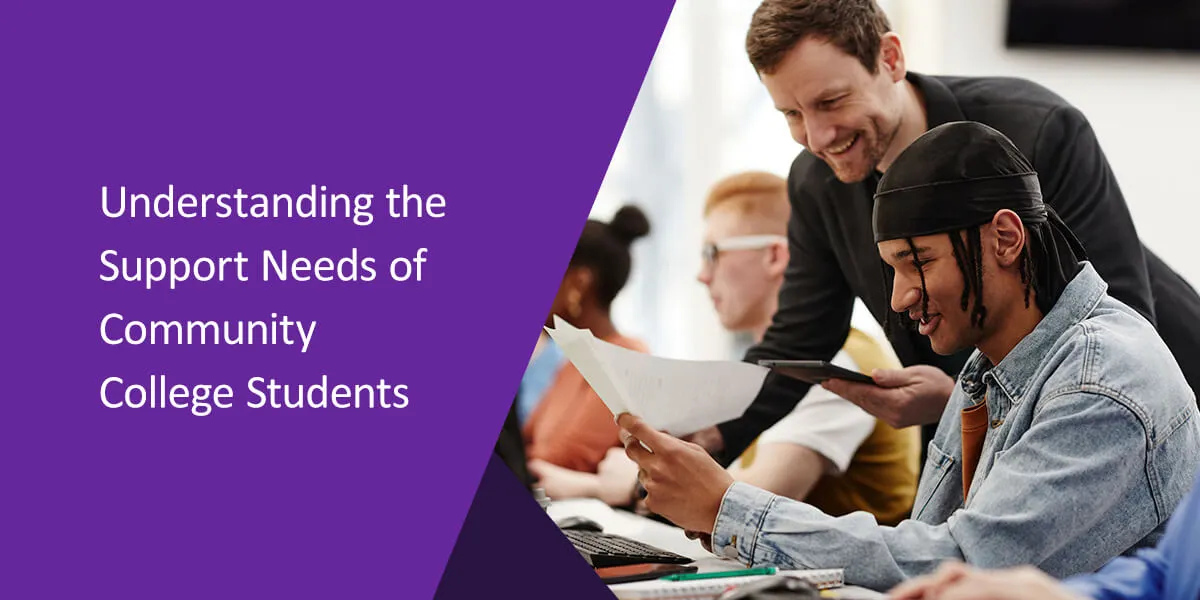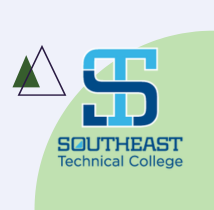
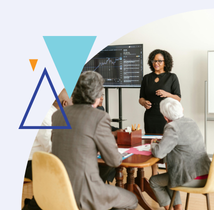


Assessments provide higher education institutions with valuable information about student performance, teaching effectiveness, and campus concerns. However, crafting and developing the best assessment practices to improve your institution can be challenging without the correct resources.
Rather than sticking to the guesswork, take a look at Watermark Planning & Self-Study. We use the best practices to obtain meaningful data and drive institutional change. Discover the best assessment practices that improve teaching and learning from Watermark.
Traditional student assessments involve giving feedback regarding class materials and instructors in a private format. Assessments are an opportunity to address pain points and explain concerns with a program or the curriculum. Institutions use this information to create a more enriching student experience and implement departmental changes that meet student needs. Instructors can use this information to evaluate their teaching methods and explore more relevant practices to engage students.
Assessments require direct and indirect measurements for the most accurate and meaningful data collection. Direct measurements, such as exams, research papers, projects, and assignments, provide administrators with measurable artifacts detailing student performance. Indirect measurements, like attendance rates, surveys, and assessments, provide institutions with additional information that can help identify a disconnect between course materials and student performance and opinions.
There are no one-size-fits-all solutions for assessments in education. There are many effective assessment practices, and each institution may find one fits campus culture better than another. Understanding varying assessment types can help you determine which would be the most beneficial for your institution.
Types of assessments in education include:
Education assessments offer a unique challenge for many higher ed institutions. Although student assessments provide valuable information regarding curriculum and instruction, many institutions exert a lot of effort into duplicating the process and analyzing the information.
Assessments often leave colleges and universities with thousands of responses to sort through. Without the appropriate technology, sorting this information can be expensive and time-consuming. Without enough meaningful data to work with, institutions are unsure where to focus their efforts and obtain little supporting data to drive change. Additionally, institutions lose valuable opportunities to identify at-risk students and departments needing drastic change.
You can conquer these challenges with software solutions like Watermark Planning & Self-Study. You can use this platform to store and reuse data through multiple systems rather than dedicating time to enter the same information repeatedly. Additionally, you can filter customizable reports and share your findings seamlessly, giving you more time to focus on what really matters — your students.
Advancing assessment practices can help you develop a system that drives change at your institution. To craft assessment literacy, you must understand which type to use and how to use the data you collect to improve campus culture and life. Take a look at these assessment practices to foster an efficient system.
Each of your assessments must be reliable, standardized, and practical. Your assessments must be replicable and able to produce the same results over and over again. Without reliability, the data you collect is meaningless. Your assessments must also be standardized. Standardization enhances reliability by establishing a precedent. Lastly, your assessments must be practical. Having a practical assessment involves understanding whether the workload is reasonable and relevant to the course’s learning goals.
Students benefit immensely from feedback. When students complete assignments and finish challenging material, giving them meaningful feedback can help prepare them for upcoming assessments and projects. Additionally, communicating with your learners about your campus initiatives and assessment intention is critical. Regarding student course or instructor surveys, explaining what you hope to achieve and how they can shape their education may encourage them to give honest, useable feedback.
Validity determines whether an assessment can accomplish its goal. This means using questions and methods that relate to the topics at hand. To ensure your assessments are valid, you should begin constructing them by designing a content blueprint that aligns with the assessment’s purpose. This will help keep your students focused and ensure your data is meaningful.
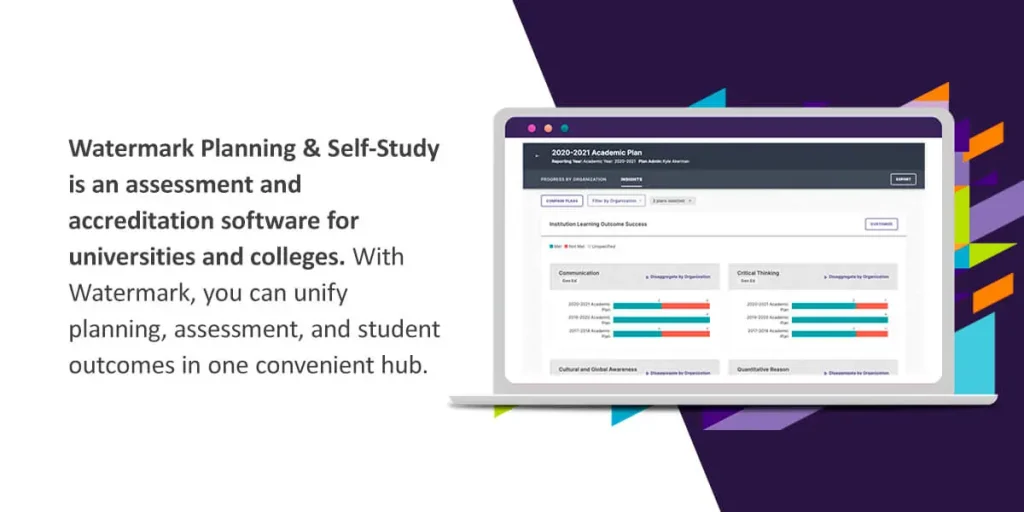
Planning & Self-Study is just one of the many software solutions Watermark offers for higher education institutions. Watermark Planning & Self-Study is an assessment and accreditation software for universities and colleges. With Watermark, you can unify planning, assessment, and student outcomes in one convenient hub. Our intuitive system makes gathering, comprehending, and reflecting information easy.
With Planning & Self-Study, you can import or create any report template, reducing the time you need to prepare for your next assessment. You can even export information in multiple ways to meet accreditor specifications, including entirely offline.
With Watermark Planning & Self-Study, you can improve institution effectiveness by building program profiles, mapping outcomes, tracking progress, and streamlining the review process. You can reduce the time it takes to obtain meaningful data and focus on what matters most to your institution.
Planning & Self-Study can align with your organizational structure, seamlessly involving academic leadership at every level of your college or university. Your stakeholders will know what you need from them, and you can easily enter relevant data into your system, enabling you to document and revise the information and define success and learning outcomes.
Additionally, with our program, you can manually enter raw data and upload results quickly. It’s easy to update your team and gather results through an assessment cycle. You’ll be able to track trends and determine whether you’re meeting your goals or need to follow up on actions. With the time you save with our program, you’ll be able to streamline the review process and evaluate your progress at a glance.
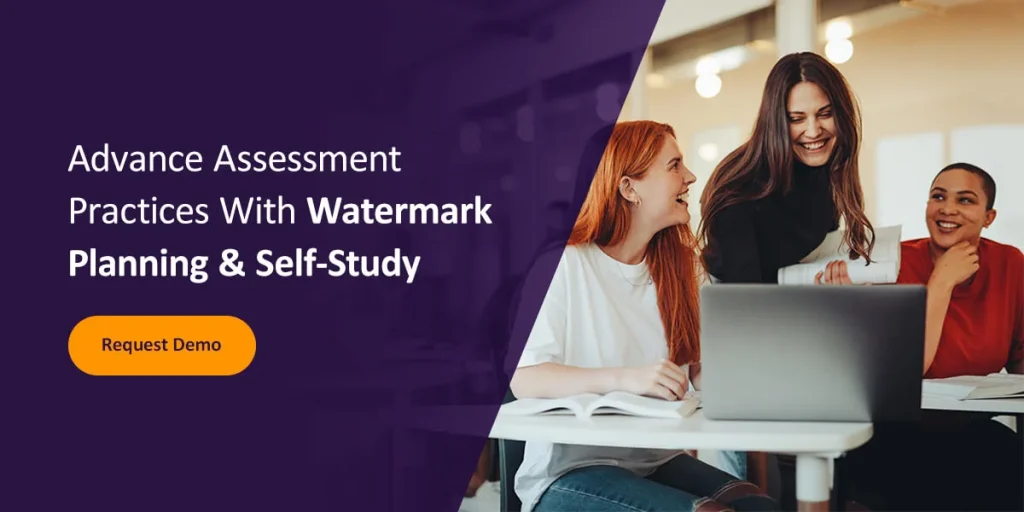
At Watermark, we know information drives change, and we’ve been using meaningful data to create innovative solutions for colleges and universities for over two decades. With Watermark, you can build a framework for designing outcomes. With authentic measures, you can measure a broader range of learning outcomes.
Using innovative assessment practices, you can create high-impact change and enhance your student and faculty experiences. Request a demo of Watermark Planning & Self-Study today.




































































